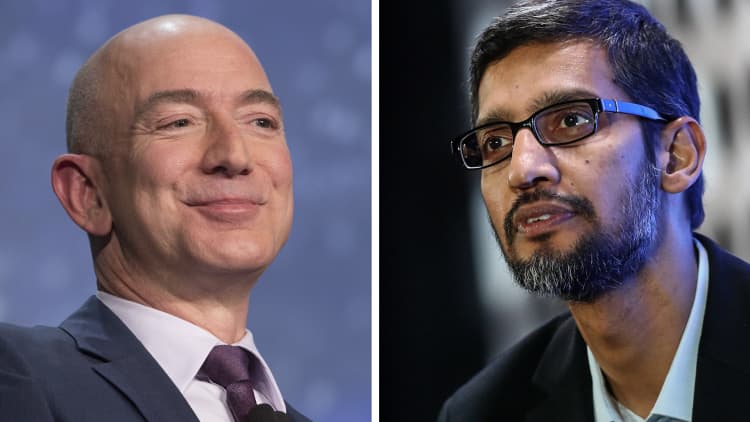It should come as no surprise that intelligence is a trait that Google values in potential employees — but not for the reasons you might expect.
In "How Google Works," former CEO Eric Schmidt and Alphabet Inc. adviser Jonathan Rosenberg write that the tech giant hires candidates not for the knowledge they possess, but for their ability to learn.
"Our ideal candidates are the ones who prefer roller coasters, the ones who keep learning," the authors write. "These 'learning animals' have the smarts to handle massive change and the character to love it."
Psychologists call this a "growth mindset," and these types of employees are highly valued in the ever-evolving tech world.
University of Pennsylvania psychologist Angela Duckworth describes a growth mindset as a belief that people are growth-oriented, malleable and can learn through both experience and effort. The opposite is a fixed mindset, which is a "deep down" belief that people are unchangeable.

"Your mindset can set in motion a whole chain of thoughts and behaviors," Schmidt and Rosenberg write. People with a fixed mentality maintain set performance goals and worry about making mistakes that will impact their self image.
But with a growth mentality, you'll push yourself to keep learning and taking risks without worrying about how you look, if you're asking a dumb question or whether you're giving the wrong answer. "And in the long run, you'll learn more and scale greater heights," the authors write.
This eagerness to learn is particularly important because the world is changing so fast across all industries. In fact, they write, it's almost a given that the role you were hired for will change. For these reasons, it's better to be a "smart generalist" than a specialist, especially in the tech industry.
According to Schmidt and Rosenberg, specialists bring an inherent bias to their work because they are laser-focused on what they know. As a result, they may feel threatened by solutions that require additional learning or new expertise.
Smart generalists, on the other hand, don't have this bias, and so they're able to learn and explore a wide range of solutions before they "gravitate to the best one."
Like this story? Like CNBC Make It on Facebook.
Don't miss: Microsoft HR exec: These are the 3 skills you should have to score a job at the company



